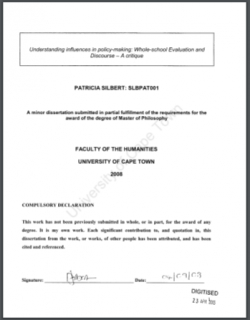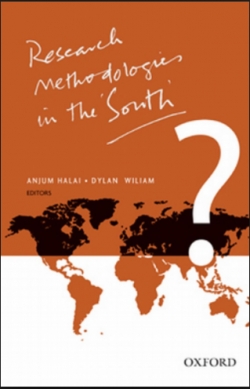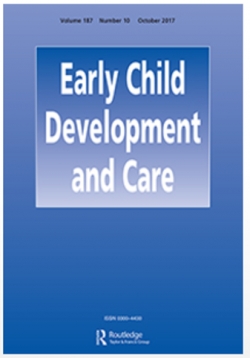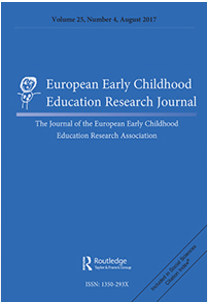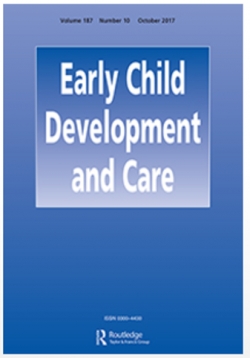Journal of Education 37:79-102 Research with under fours: some sense making moves
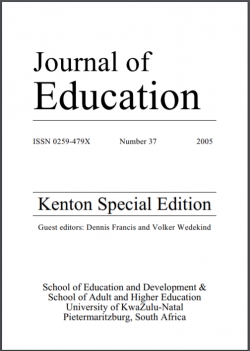
Type
E-Journal
ISSN
0259-479X
Category
ECCE, Preschool
[ Browse Items ]
Publication Year
2005
Publisher
URL
[ private ]
Pages
24 p.
Subject
Early childhood education, Children’s rights, Young children, Preschool children, Children as social actors, Image of child, ECE centres, Participatory research, Ethics, South Africa
Tags
Series Name
Abstract
Internationally, the understanding of children as social actors and the belief in children's rights - in particular, the right to be heard and to participate in their lives has led to inclusion of children's voices in research. South Africa was party to the African Charter on the Rights and Responsibilities of the African Child (OAU, 1994), and ratified the United Nations Convention on the Rights of the Child (UNICEF, 1989) which advocates strongly for a recognition of children as persons in their own right, capable of acting on their social world, and articulating their experiences in different ways. Whilst there are a growing number of studies in South Africa that include the voices of school-age children (for example, Griesel, Swart-Kruger and Chawla, 2004; Children's Institute, 2003; Nelson Mandela Foundation, 2005; Van der Riet, Hough, and Killian, 2005), there is a paucity of South African research that includes the 'tellings' of young children, in particular, the under fours. In this article, a sociological lens is used to explore some sense making moves in doing research with under fours as people in their own right. The article draws on a study that investigated under fours as social actors doing childhood in two multi-ethnic early childhood centres in KwaZulu-Natal. Four sense making moves are highlighted, namely, the complexities of researching children as social actors doing childhood; the potential of participatory techniques for researching children's knowledge; the tensions inherent in the altering of power relations between researcher and children; and the challenges of working through situated ethics. An examination of these issues suggests the need for the practice of responsive research where multiple sense making moves are adopted in order to engage, firstly, with complex circumstances that shape young children's lives and secondly, with the particularities of young children as people shaping their lives.
Description
Article
Number of Copies
1
| Library | Accession No | Call No | Copy No | Edition | Location | Availability |
|---|---|---|---|---|---|---|
| Main | 200 | 1 | Yes |
